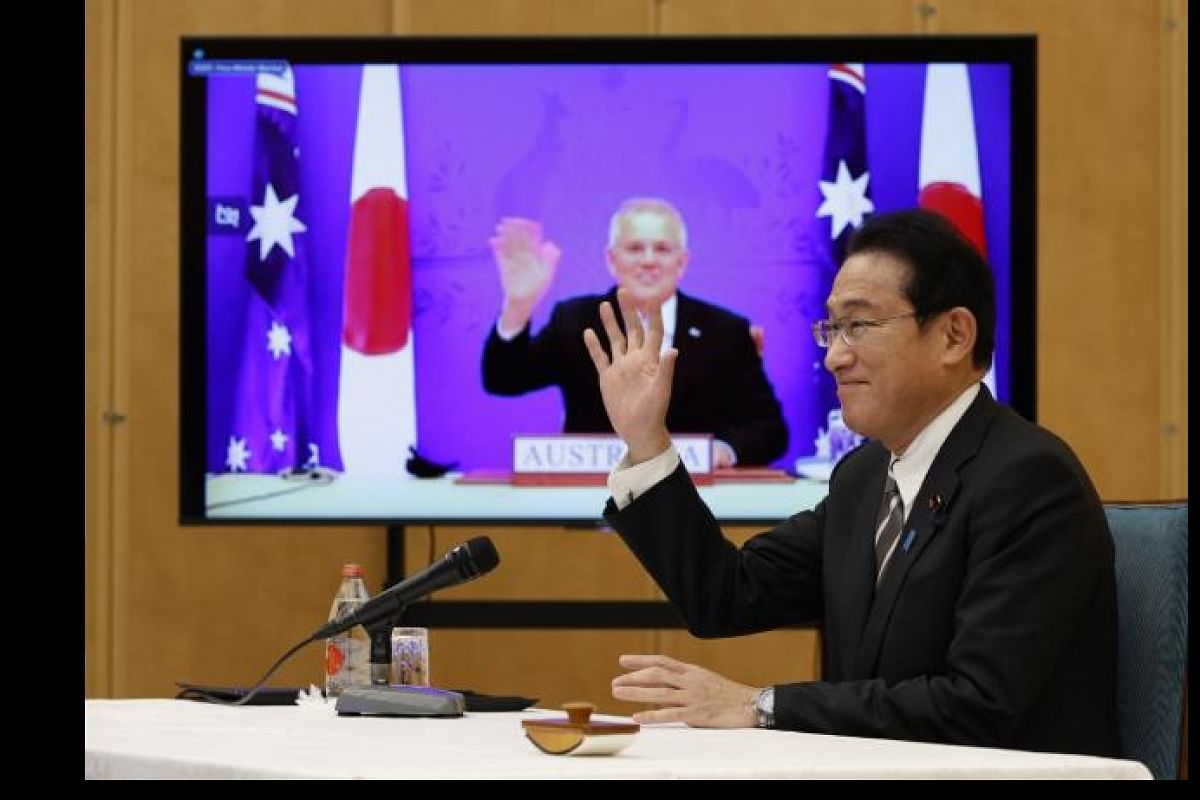Live Classes

Japan-Australia defence agreement signals that middle powers are willing to play a more active role in the Indo-Pacific.
The Reciprocal Access Agreement (RAA), the defence treaty between Australia and Japan, apart from its strategic significance for Asia and the Indo-Pacific, fortifies trends that are part of the changing security architecture in the region. For one, it marks the move away from a US-centric outlook towards a greater focus on bilateral ties and regional groupings. It is also a sign that Japan is willing to play a more proactive role in the region. The security order that emerged after the Second World War in Asia and the Indo-Pacific was marked by the US’s bilateral ties with various players. This was in contrast to American strategy in Europe, where NATO played a key role. With the rise of an assertive, even belligerent, Beijing, that seems to be changing. The Quadrilateral Security Dialogue (or the Quad, with India, Japan, Australia and the US), the AUKUS, and now the RAA between Japan and Australia — two treaty allies of the US — all point towards a more empowered and committed regional strategic network. This has been enabled, among other factors, by Australia’s willingness to stand up to China on the question of a free and open Indo-Pacific and rules-based global order, despite their deep economic ties. For Japan, this marks an even greater shift, of a piece with the recent evolution in its outlook and global image. Thus far, Japan’s only major defence ally had been the US. This reticence in taking the lead in the strategic domain was driven by the legacy of the Second World War, and the fact that Japan had been an imperial power, which made many DELHI (H.O.): 632, Ground Floor, Main Road, Mukherjee Nagar, Delhi-9 | Ph.: 011-27658013, 7042772062/63 13 countries in the region wary of it. Yet, recently, both Vietnam and the Philippines have looked to Tokyo to provide a bulwark against Beijing, signalling a greater acceptance of Japan’s role as a strategic player. And Tokyo is now expanding its ties further: Reports suggest it will seek RAA-like agreements with the UK and France as well. China’s reaction to the RAA has been predictable, ranging from the ambivalent to the negative. The treaty underscores the thrust its aggressive stance has provided to middle powers to expand their cooperation and build on the momentum created by the Quad. New Delhi, for its part, has done much to expand bilateral, trilateral and regional cooperation in the security domain — it has “2+2” ministerial dialogues with both Tokyo and Canberra. It must step up this engagement, as well as reach out to other players in the region.
Download pdf to Read More